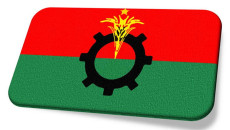
Richard Semitego
21 August, 2024 14:04
The New Path for Bangladesh: A Double-Edged Sword of Progress amid Challenges

As Bangladesh ventures into a new era under interim leader Muhammad Yunus, the nation faces a complex landscape of economic growth, political tensions, human rights, and social issues. Richard Semitego is a UK resident with many Bengali friends in the UK and Bangladesh. He also visited Bangladesh multiple times and shared his insights on the country's recent developments and future prospects.
Semitego, who led the UK Election Observers during Bangladesh's 12th National Parliamentary Election in January 2024, witnessed firsthand the challenges faced during the electoral process. Despite these difficulties, he remains optimistic about Bangladesh's potential, citing his experiences with people from various walks of life, including government ministers, educators, the war heroes of 1971, and groups of young people.
Economic Progress and Social Concerns
Under Sheikh Hasina's leadership, Bangladesh achieved remarkable economic growth, positioning itself among the world's fastest-growing economies. In April 2024, the International Monitory Fund (IMF) reported Bangladesh’s GDP at a growth rate of 5.7% which is incredible after the challenges of COVID-19 that caused economic crises around the globe. In his previous visits, Semitego held business meetings with the owners of textile industries producing garments in Dhaka, as well as the owners of the hospitality and catering industry in Sylhet. However, this progress was accompanied by concerns over human rights abuses and crackdowns on opposition leaders and activists.
Semitego notes the previous government's efforts to protect minority groups, including Hindus, Buddhists, Christians, and the LGBTQ+ communities. This commitment to inclusivity remains a crucial aspect of Bangladesh's social fabric. Fears of attacks and abuse are being echoed now among these minority groups as political chaos rambles in the country since the fall of the previous regime.
Hopes for the Interim Government to make a difference
With Nobel Laureate Muhammad Yunus at the helm of the interim government, expectations are high for addressing key issues:
- Forming an inclusive government
- Maintaining economic stability
- Reforming the quota system
- Restoring peace and security
- Protecting minority communities
- Organizing free and fair elections within two years
The interim government should lay a concrete foundation to maintain Bangladesh’s strong economy, set up an inclusive government, and improve international diplomatic relations on which the transition government can build for stability. Falling short of those key points mentioned will lead Bangladesh into political, economic and social turmoil with dire consequences as the country’s population has hit 173,840,063 million according to the United Nations' latest data released in August 2024.
Also, the new government must work to unite the country at all costs by avoiding taking revenge against the previous leaders and government officials. The focus must be on building one Bangladesh for all.
A Personal Connection
Semitego's affection for Bangladesh is evident in his description of the country as his "second home." His experiences in Sylhet and Dhaka have left a lasting impression, fuelling his desire to see the nation thrive.
As Bangladesh navigates this transitional period, the world is watching with interest to see how it will balance its economic aspirations with the need for political reform and social progress.
Richard Semitego: Director for Government and Public Sector at Africa House London.
Website: www.africahouselondon.com
Email: richard.semitego@africahouselondon.com


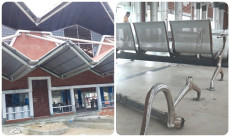
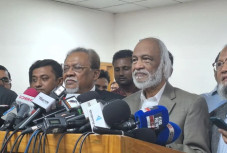
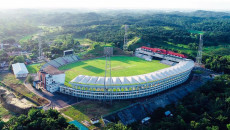
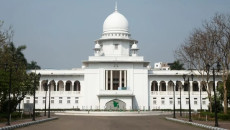
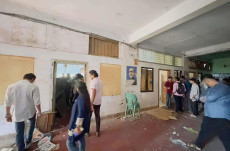
 সিলেট সিপিবি সাধারণ সম্পাদক সুমন ‘আটক’
সিলেট সিপিবি সাধারণ সম্পাদক সুমন ‘আটক’ 




 IT Lab Solutions Ltd.
IT Lab Solutions Ltd.
আপনার মন্তব্য